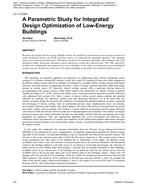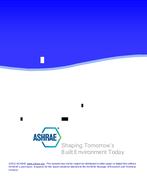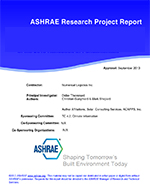High-quality indoor environments require that exterior moisture be prevented from entering, vapor be prevented from condensing, and liquid water inside the building be controlled, contained, and conveyed. Why is this easier said than done? What are the challenges that face operators in the maintenance of the liquid and vapor control systems in buildings? What happens to insulation and vapor barrier systems on pipes colder than the surrounding air dewpoint temperature as they age and are subjected to the wear and tear of building operations? What are some of the failure modes of interior piping and why are they often expensive to repair? How does the magnitude of cost of maintaining these systems compare to total operating costs and the avoided cost of IAQ complaints? What is the relative importance assigned to these factors by operators, lessors, and occupants? What lessons can be learned that can guide better building design, construction, and operation procedures? The author offers mostly anecdotal answers to these and other practical questions that affect building operations, drawing upon his personal experience and information provided by other operators and operator organizations and concentrating on mechanical systems components.
Authors: Lawrence J. Schoen, P.E.
Citation: Indoor Air Quality 2001 Moisture, Microbes, and Heath Effects: Indoor Air Quality and Moisture in Buildings Conference Papers
Keywords: November, California, 2001, IAQ
Citation: IAQ Conference: IAQ 2001
Product Details
- Published:
- 2001
- File Size:
- 1 file , 63 KB
- Product Code(s):
- D-8172


